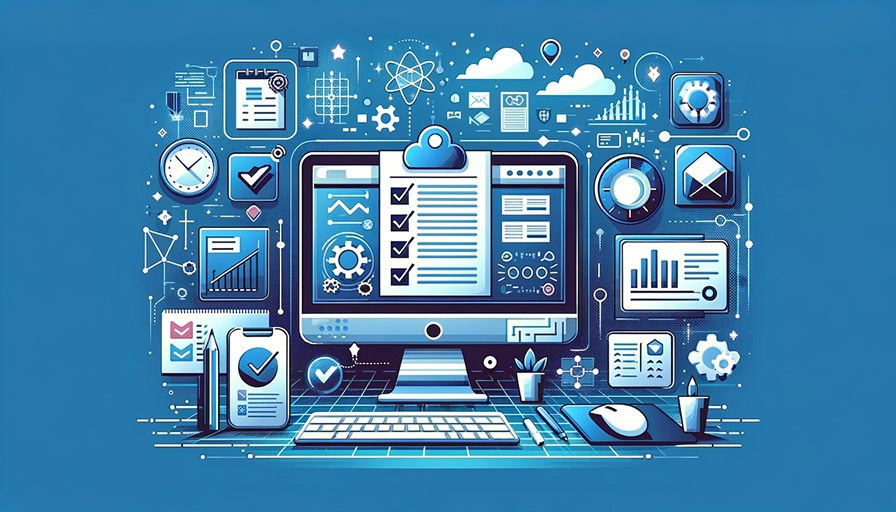
Picture this: a system with the finesse to replicate human thought, effortlessly sift through mountains of data, and craft detailed responses to complex problems. Now, what if I told you that this isn't science fiction, but our reality? These marvels, known as knowledge-based systems, are reshaping our information landscape, altering the way we process data, and revolutionizing decision-making.
Meet Your New Assistant: Knowledge-Based Systems
Knowledge-based systems are a significant subset of the expansive world of artificial intelligence, brilliantly designed to mirror human intelligence and reasoning. These systems, like an orchestra, operate in harmony, with three distinct, yet complementary components:
- Knowledge Base: Consider this the grand library at the system's core, teeming with explicit knowledge gathered from a myriad of sources. It is the system's "Book of Knowledge," offering essential wisdom that empowers the system to make informed, rational decisions.
- Inference Engine: This is the conductor of our AI symphony, the system's cerebral powerhouse. It applies logical reasoning to the knowledge in the base to infer new insights, solving problems with a level of sophistication akin to human intellect.
- User Interface: Envision this as the welcoming face of the system. It forms a communicative bridge between the system and users, allowing queries to be input and answers to be received.
Generative AI models, like ChatGPT and Bard, are prime examples of knowledge-based systems. These systems employ their expansive knowledge base and powerful inference engine to communicate and provide information in a human-like manner, making it both relatable and practical.
As we plunge further into the digital age, systems like these are paving the way for a future where AI isn't merely a tool but an essential partner, reshaping our interaction with the world around us. It's a fascinating journey, and we're just getting started.
The Powerhouse of Knowledge: The Robust Knowledge Base
The effectiveness of a knowledge-based system is intertwined with the quality and depth of its knowledge base. A robust knowledge base tool is the system's intellectual treasury, holding the explicit knowledge needed to carry out intricate tasks and make enlightened decisions.
How Do Knowledge-Based Systems Function?
How do knowledge-based systems conjure up their magic? They put to use a wealth of knowledge tucked away in their knowledge base to untangle even the most intricate problems. These problems can vary from decoding medical mysteries to discerning eligibility for various services. The inference engine, acting as the system's analytical brain, applies a logical rulebook to understand and interpret the information, thus steering the decision-making process.
Turning tacit knowledge into explicit form is like giving AI a superpower, and here's why:
- Simplicity of Acquisition and Maintenance: With these systems, experts can create and refresh rules directly. It's like having a built-in programmer in your pocket.
- Clarity of Thought: The system can backtrack its logical steps to its conclusions, offering clear-cut explanations. It's transparent, like a stream of crystal clear water.
- Universal Reasoning: Separating the knowledge from the process of using it enables the creation of all-purpose inference engines, capable of drawing unexpected yet astute conclusions.
Where Knowledge-Based Systems Shine
Knowledge-based systems are like the superheroes of the computer program world. They flex their muscles in efficient documentation, intelligent data processing, and expert decision-making. Their mission? To turbocharge productivity and escalate the quality of work. Let's see them in action:
- Medical Diagnostics: Knowledge-based systems have been game-changers in identifying diseases. One of the pioneers was Mycin, a system capable of recognizing bacteria causing severe infections and suggesting the right antibiotics, even tailoring dosage adjustments for individual patients.
- Eligibility Analysis: These systems act like personal assistants, determining eligibility for specific services through a series of guided questions. They probe diligently until they encounter a disqualifying response, cutting out the need for a middleman.
- Data Classification: They scrutinize diverse data to determine its classification status, helping us better understand and categorize our world.
- Collaborative Problem-Solving: Like virtual round-table conferences, they facilitate collaborative problem-solving, with diverse experts contributing to a solution.
- Search Capabilities: They've reinvented the way we search for information. By comprehending the intent behind a query, they generate more accurate and relevant search results, simplifying our quest for information.
- Bridging Organizational Knowledge Gaps: In an organization, valuable knowledge can often become fragmented or isolated due to organizational silos and employee turnover, creating knowledge gaps that hinder efficiency and innovation. However, with knowledge-based systems as the organization's intellectual treasure trove, you can capture and preserve institutional knowledge ensuring minimal gaps in organizational knowledge.
Envisioning the Future of Knowledge-Based Systems in Business
As we cast our eyes to the horizon, the possibilities for knowledge-based systems in the business realm are staggering. These systems have the potential to become invaluable team members, shaping our work and propelling businesses forward. Let's imagine some future scenarios:
-
Marketing: Let's join your marketing team in a brainstorming session for an upcoming campaign. Currently, a knowledge-based system sifts through heaps of customer data and provides useful insights. But let's turn the dial on our time machine a bit forward.
In the future, these systems will not just analyze data; they'll delve into the nuances of customer behavior. They'll understand the sentiment behind social media posts, interpret the meaning of online reviews, and predict emerging customer trends before they become mainstream. This hyper-aware, knowledge-based system would even suggest tailored marketing strategies, including the best time to launch, the ideal platforms to use, and the perfect marketing language that resonates with your target audience.
With such profound insights and actionable recommendations, your marketing campaigns become not just hits, but trendsetters.
-
Sales: Envision your sales team gearing up for a challenging quarter. At present, a knowledge-based system plays a crucial role in identifying potential leads and forecasting sales. But in the future, these systems will evolve to understand complex sales dynamics and buyer psychology.
They'll analyze historical sales data, market trends, competitor strategies, and individual client buying behaviors to provide comprehensive sales strategies. Imagine a system that suggests the best time to contact a client, the most effective communication style, and even potential cross-selling or up-selling opportunities based on clients' past purchases and preferences.
Sales performance skyrockets, and your team confidently navigates the sales landscape with data-backed precision and personalization.
-
Customer Service: Picture a customer reaching out with an issue late at night. Currently, chatbots, powered by knowledge bases, can provide assistance. But now, let's stretch our imagination a bit further.
In the near future, our knowledge-based systems will have evolved into even more sophisticated and empathetic virtual customer service agents. These agents would not just understand the customer's issue, but also the underlying sentiments and context. They'd be able to recognize frustration, urgency, or confusion and adjust their responses accordingly. Furthermore, they would be capable of handling multi-turn conversations, predicting customer needs, and even proactively offering assistance based on past interactions and behavior patterns.
The result? A delighted customer who feels heard, understood, and taken care of, no matter the time of day or night. Your brand's reputation for exceptional customer service strengthens, fostering deeper customer loyalty and satisfaction.
- User Experience: Lastly, consider your UX team trying to optimize your app's interface. A knowledge-based system comes to the rescue by analyzing user behavior and identifying patterns. Based on these insights, your team creates an improved user interface that's intuitive and user-friendly, significantly enhancing user satisfaction and engagement.
As knowledge-based systems continue to learn and grow alongside us, they'll keep pushing the boundaries of what's possible, shaping the future of our work and businesses. With these systems at our side, we're not just dreaming of a smarter business future—we're building it.
The Human Element in Knowledge-Based Systems
It's important to note that while we discussed the thrilling potential of knowledge-based systems in the business world, it's equally important to not lose sight of the most important component when discussing these systems: the human element. It doesn't matter how advanced these systems become, their success ultimately hinges on us - the human architects and users.
Knowledge-based systems are not intended to replace us, but to amplify our capabilities. They rely on our expertise to build their knowledge bases, and our creativity to ask the right questions and apply their insights. As users, it's our feedback and interaction that help these systems to learn, adapt, and evolve. They're our partners, not our replacements.
Furthermore, it's crucial that these systems are designed and used ethically and responsibly, with a deep understanding of the potential implications of their use. And that's a responsibility that rests squarely on human shoulders.
In this new era of knowledge-based systems, let's strive to remember that our human touch will be the defining factor in how effectively these systems can drive our businesses forward. The future is not just about smarter systems - it's about smarter partnerships between humans and systems.
Discover the Potential of Helpjuice
Helpjuice is the tour de force of knowledge base software available today. It empowers your team with on-demand, structured knowledge, amplifying decision-making and productivity. Dive into the transformative world of Helpjuice with a complimentary 14-day trial and experience its power firsthand.



